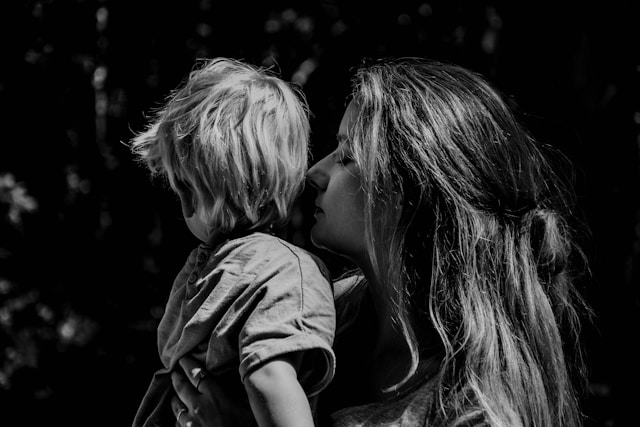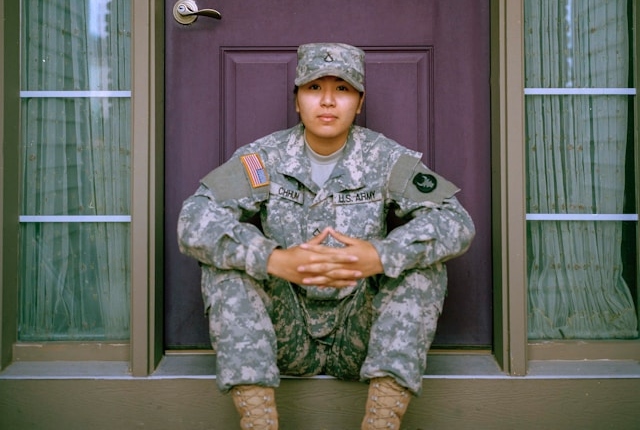Addressing the Unique Mental Health Needs of Women Veterans
Have you ever wondered what challenges women veterans face after serving their country? The mental health needs of women veterans often go unnoticed, yet their experiences demand attention. How can we step up to make a difference? Supporting organizations like NAAV, Inc. offers a powerful way to help American veterans reclaim their peace of mind and stability.
What Are the Unique Challenges Women Veterans Face?
Women in the military face unique challenges that impact their mental health. Experiences such as trauma from combat, military sexual trauma (MST), and societal expectations create significant burdens. These factors often result in post-traumatic stress disorder (PTSD), anxiety,
and depression. Women veterans also experience higher rates of homelessness, domestic violence, and isolation after transitioning to civilian life.
Their struggles frequently intersect with family obligations, making a recovery even harder. Balancing caregiving roles while addressing deep-seated trauma requires tailored support. The difference among the genders in military experiences highlights the need for gender-specific care that acknowledges these unique hurdles.

Women have responsibilities that make it difficult to take care of themselves.
Woman Have It More Difficult
Women veterans often face more significant challenges than men when reintegrating into civilian life due to unique societal, familial, and service-related factors. While both genders experience the psychological toll of military service, women often grapple with distinct issues such as military sexual trauma (MST), which is more prevalent among women and leaves long-lasting emotional scars. They are also more likely to bear the primary responsibility for children or aging parents, adding layers of stress and financial strain during the transition. The absence of adequate childcare or family support systems often limits their ability to pursue education, employment, or mental health care.
In addition to these personal burdens, women veterans frequently encounter gender bias in the workplace. Employers may undervalue their military experience or fail to recognize their leadership skills. This bias, coupled with societal stereotypes that frame veterans as predominantly male, leads many women veterans to feel invisible or misunderstood. Furthermore, women often lack access to gender-specific support systems, such as women-only veteran groups or tailored healthcare programs. For some, this isolation exacerbates mental health issues like PTSD and depression. Addressing these compounded challenges requires acknowledging their struggles, offering tailored resources, and fostering environments where women veterans can thrive without stigma.
Barriers to Accessing Mental Health Services
Despite their struggles, many women veterans do not seek mental health care. Why? Barriers such as stigma, fear of judgment, and a lack of gender-specific services create obstacles. Some hesitate to reach out due to negative experiences with Veterans Affairs (VA) systems.
Geographical limitations, long wait times, and financial concerns also stop women from accessing care. Without proper treatment, conditions like PTSD and depression worsen, leading to higher risks of substance abuse and mental health crises. Ensuring accessible and welcoming environments is essential for encouraging them to get the help they need.
The Importance of Tailored Mental Health Support
Why is tailored care critical? Women veterans’ needs differ from traditional veteran care models. Gender-specific programs and therapies address their unique experiences, including MST and family-related challenges. For example, support groups designed for women veterans allow shared understanding in a safe space.
Customized therapy approaches, like art and equine therapy, often help women open up about trauma. Services focusing on family dynamics also improve long-term mental health outcomes. These tailored strategies bridge the gap, addressing the mental health needs of women veterans in ways that resonate deeply.
- Types of Tailored Support:
- Safe, women-only therapy spaces
- Programs addressing trauma from MST
- Flexible care options for mothers
- Support groups for shared understanding
By aligning care with women’s unique experiences, organizations can truly make an impact.

The mental health needs of women veterans are very important.
How NAAV, Inc. Helps Women Veterans
NAAV, Inc. focuses on programs that address the mental health needs of women veterans. By tailoring services to their unique challenges, the organization fills a vital gap in care. Have you ever thought about what it takes to rebuild a sense of purpose after military service? NAAV, Inc. supports this recovery through counseling, housing assistance, and specialized therapy programs.
One impactful program provides help for survivors of military sexual trauma. These services include one-on-one therapy, group sessions, and financial support to reduce stress. NAAV, Inc. also offers workshops that address family-related issues, recognizing how caregiving responsibilities add pressure to women veterans. The organization empowers veterans to reclaim control over their lives by combining practical aid with emotional support.
The Role of Monthly Donations in Supporting Women Veterans
Do you wonder how these life-changing programs stay afloat? Monthly donations are the foundation. Regular contributions allow NAAV, Inc. to maintain services for women veterans who often face invisible struggles. Without consistent funding, many veterans would lose access to the care they deserve.
When you donate monthly, you help NAAV, Inc. plan long-term solutions. Programs addressing mental health challenges faced by veterans require stability, not temporary fixes. Every dollar funds crucial resources like therapy, shelter, and outreach programs. Imagine how many lives a small, regular donation can transform.
Awareness and Advocacy Is Important
Raising awareness is essential to meeting the mental health needs of women veterans. Many people remain unaware of the challenges women face after leaving the military. Have you considered how community involvement could amplify their voices? Public advocacy shines a light on these issues and pressures policymakers to act.
Engaging with local events, sharing stories, and volunteering can make a difference. Each effort helps create an environment where veterans feel valued and supported. NAAV, Inc. provides a platform for these efforts, but the community must carry the message forward. 6

Raising awareness on the topic is important.
The Mental Health Needs of Women Veterans Can Be Met
How will you respond to the needs of women who have served the nation? The difference between genders in military service calls for customized care, as seen in NAAV, Inc.’s programs. Addressing the mental health needs of women veterans demands a collective effort. Reflect on how a single act of kindness—like a monthly donation—can reshape a life. Will you stand with NAAV, Inc. to ensure no veteran walks this path alone? The chance to give back starts today.
Author:
Jessica Thompson, a freelance writer from Long Island, New York

